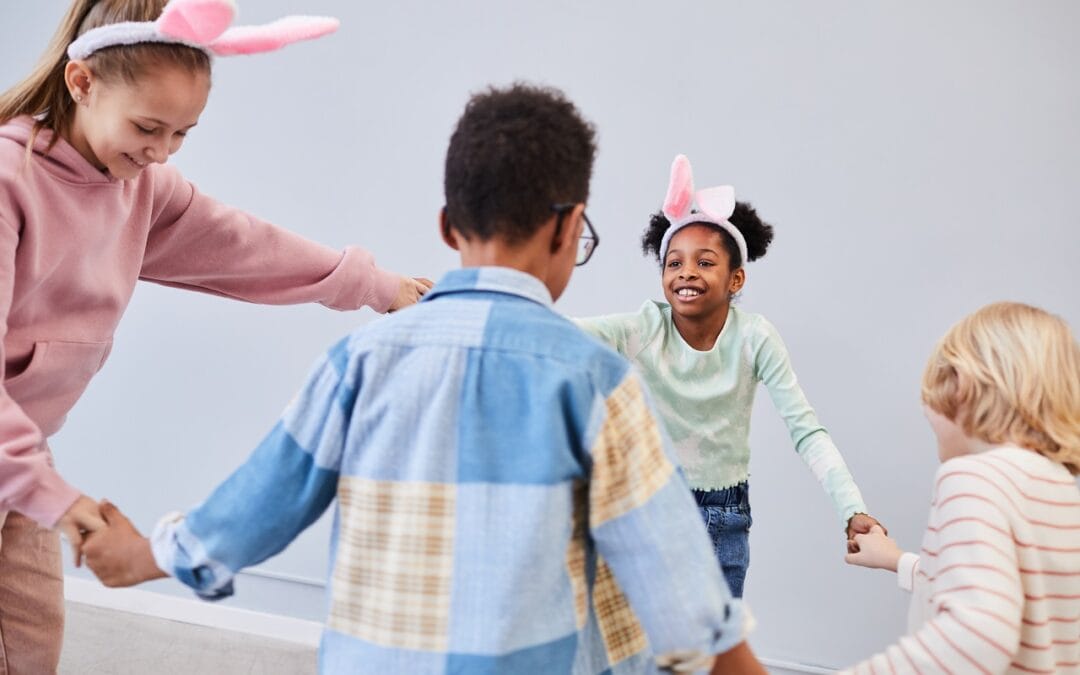Just picture this for a moment—a child’s laughter fills the air as they busily build towers from colorful blocks, their imagination running wild. It may look like nothing more than fun and games, but there’s a lot more happening beneath the surface. This seemingly simple act of play is actually fueling their development in ways you might not even realize.
Play is not just about fun and amusement for children. It’s a critical aspect of their growth and development. Play-based interventions are increasingly recognized by educators and psychologists for their vast potential in supporting children’s cognitive, social, emotional, and physical development.
Through play, children learn to interact with the world around them, understand and express their feelings, develop their creativity and problem-solving skills, and so much more. Play-based interventions help children to learn and develop these skills in a natural, enjoyable way.
But how does it work, you might ask? How can something as simple and enjoyable as play have such a profound impact on a child’s development? Well, that’s what we’re here to explore.
Encouraging Cognitive and Problem-Solving Skills Through Play
Play-based interventions can significantly enhance cognitive development, promoting critical thinking, memory, and problem-solving skills in children. From puzzles to blocks and imaginative games, various activities can be utilized to bolster mental growth. A few examples include:
- Problem-solving games: Challenging children with activities like puzzles, sorting games, or building tangible structures can develop spatial reasoning, critical thinking, and decision-making skills.
- Pretend play: Engaging in pretend play allows children to experiment with various roles, take on different perspectives, and exercise their imagination and creativity.
- Board games: Board games often require strategy and planning as well as memory and concentration, providing excellent opportunities to advance cognitive development.
Promoting Language and Communication Through Play
Language and communication skills can be honed through enjoyable play-based settings, offering opportunities for children to practice listening, speaking, and interacting with others. Some play-based strategies for language development include:
- Narration: Encourage children to narrate their play, describing their actions and intentions, thus creating a natural avenue for language practice and development.
- Role-playing games: Engaging in role-playing scenarios allows children to practice conversational skills, expand vocabulary, and develop understanding of social cues and norms.
- Reading-centered play: Integrate storybooks, puppets, or storytelling activities into playtime, fostering language skills while cultivating a love for literature.
Supporting Physical Development Through Active Play
Active play is essential for children’s physical development, strengthening motor skills, coordination, and overall well-being. Play-based interventions can be highly effective in targeting specific aspects of physical development, such as:
- Gross motor skills: Encourage activities like running, jumping, climbing, or playing sports to enhance coordination, balance, and body strength.
- Fine motor skills: Strengthen fine motor abilities with crafts, playdough, threading beads, or using tweezers to pick up small objects—all engaging activities that can support the development of fine motor control.
- Sensory exploration: Sensory play, such as water play, sand, or finger painting, can stimulate children’s senses and promote a better understanding of their bodies in relation to the environment.
Fostering Social and Emotional Growth Through Play
Social and emotional development can be nurtured within play-based interventions by enhancing self-awareness, empathy, and emotional regulation. Interaction and cooperation during play create invaluable opportunities to foster social development. A few examples include:
- Group games: Playing group games like “Duck, Duck, Goose” or “Red Light, Green Light” require interaction, communication, and cooperation, fostering social skills while enjoying playtime.
- Emotion-focused activities: Utilize playtime to explore emotions by discussing characters in books, using emotion flashcards, or engaging in emotion-based role plays, promoting emotional awareness and understanding.
- Conflict resolution: Play-based scenarios involving conflict resolution or negotiation can be opportunities for children to develop problem-solving skills and learn effective communication within social interactions.
Integrating Play-Based Interventions at Watch Me Shine
Our team at Watch Me Shine recognizes the value of play in childhood development and actively incorporates play-based interventions into our programs:
- Speech and language therapy: Our speech therapists use engaging play activities to target language and communication skills, stimulating children’s natural abilities and addressing specific language challenges.
- Occupational therapy: Our occupational therapists utilize play-based settings to enhance children’s fine and gross motor skills, sensory processing, and overall functioning.
- Literacy: Play-centered approaches, such as interactive storytelling, story-related games, or character-focused role-playing, are engaged to promote language and literacy skills.
- Social skills: Our social skills programs incorporate playful interactions, mimicking real-life situations, and fostering communication skills, emotional regulation, and empathy.
The Role of Play in Nurturing the Holistic Development of Children
The power of play as a developmental platform is substantial, providing opportunities for children to learn, explore, and grow across various domains. Play-based interventions have demonstrated success in promoting cognitive, physical, social, emotional, and communication development, all while keeping children engaged and entertained.
At Watch Me Shine, we understand the value of play and actively incorporate it into our child therapy services, ensuring that your child receives the support and guidance they need in an enjoyable and meaningful way. Let us help your child harness the power of play to flourish, develop, and reach their full potential in a fun and engaging environment.

